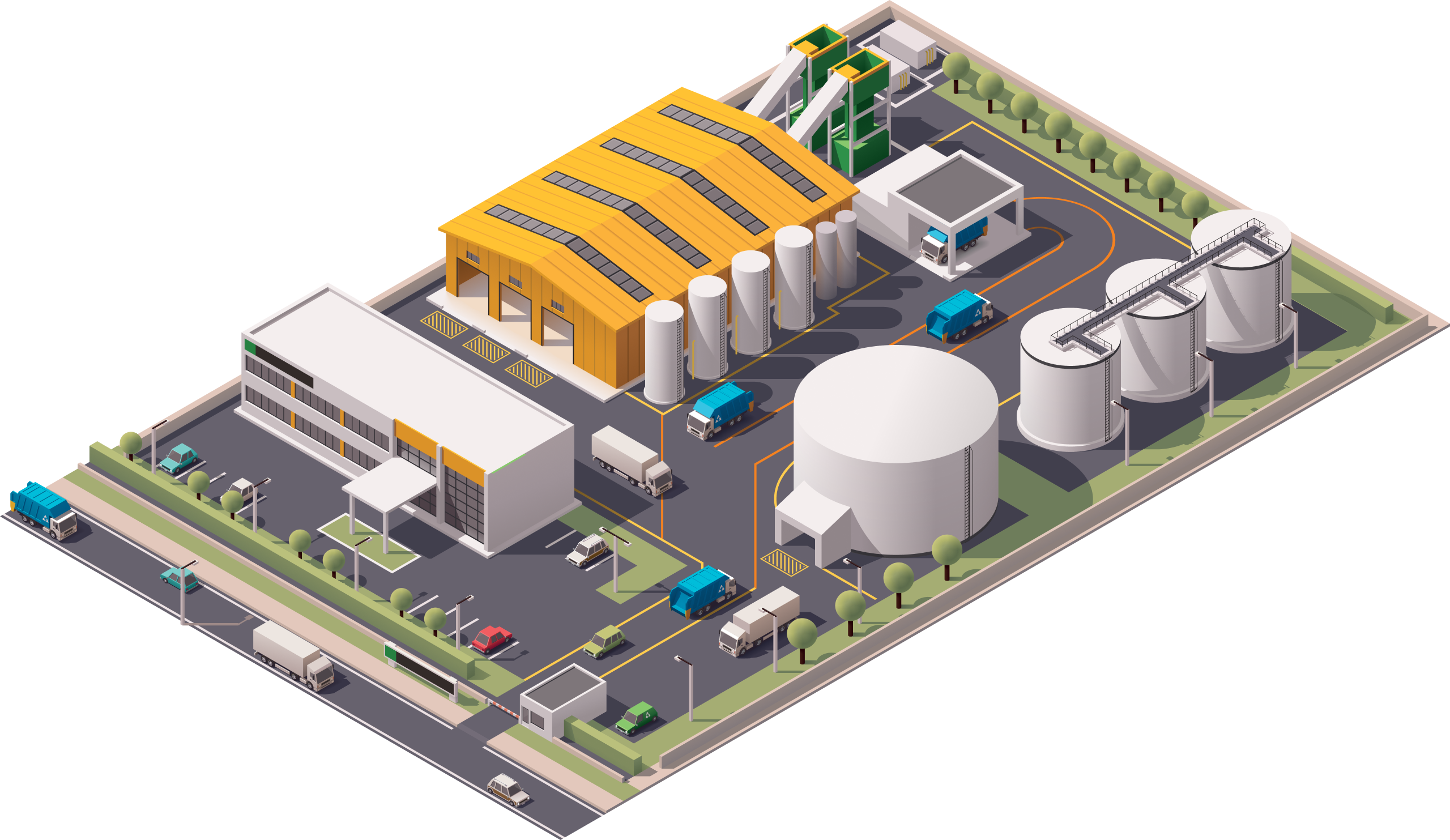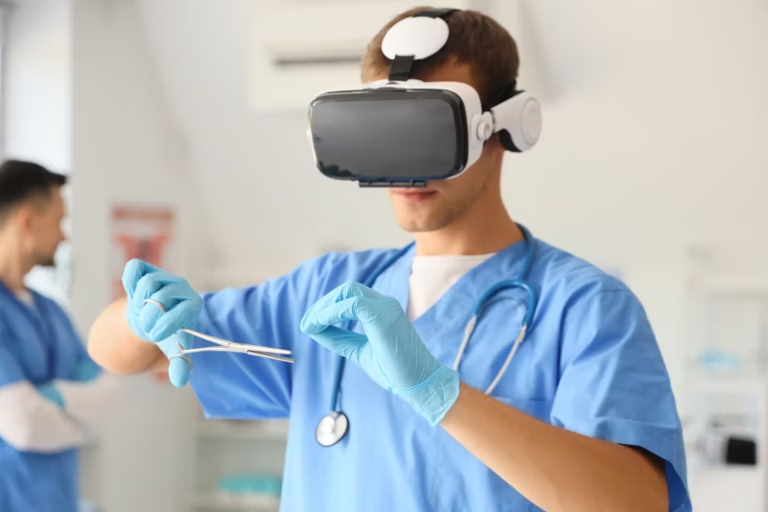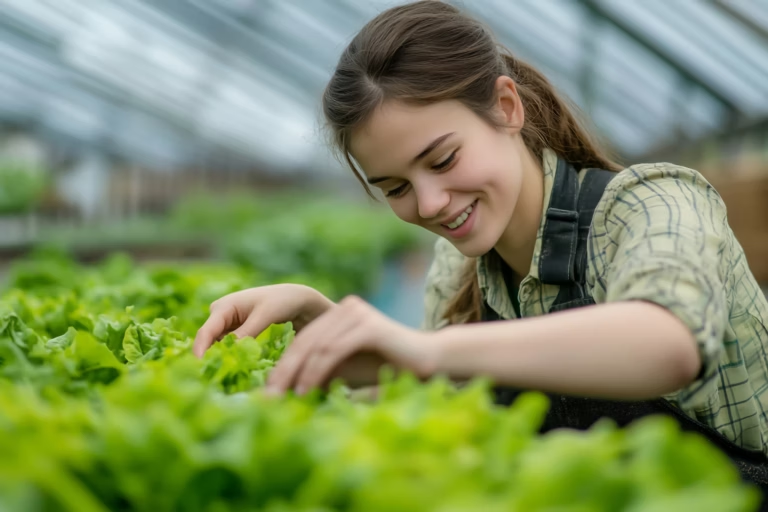Biomanufacturing
BioBuilt Futures: Explore Careers in Biomanufacturing!
Discover the Greater Whitsunday Biomanufacturing Industry.
Imagine making milk without cows or egg whites without chickens…it sounds like science fiction but it’s entirely possible! Biomanufacturing is transforming how we create everyday products, using biology instead of fossil fuels.
By harnessing living cells, enzymes, and microbes, this cutting-edge industry produces animal-free proteins, sustainable fuels, biodegradable plastics, and more —made in ways that are better for people and the planet.
This might sound like a far-off future, but it’s already starting to happen — right here in the Greater Whitsunday region. Australian food-tech company Cauldron Ferm has announced a major facility, the first of its kind in the Asia-Pacific region, set to be built locally in Mackay. With a bold vision to become a national leader in biomanufacturing by 2030[1], the Greater Whitsunday region is gearing up to grow this exciting industry.
With biomanufacturing expected to become a $13 billion industry across Australia by 2040[2], exciting new jobs and possibilities will be created for the next generation.
Why Consider a Career in Biomanufacturing?
-
Shape the Future of Food & More
Biomanufacturing is revolutionising how we produce food, materials, cosmetics, and pharmaceuticals. Work in a sector focused on sustainability, health, and ground-breaking innovation.
-
A Career with Impact
Help solve global challenges — from climate change to food security — through biological innovation. This is a meaningful career path for those who want to make a real-world difference.
-
Hands-On or High-Tech
Whether you’re into science, tech, engineering, or production, biomanufacturing offers diverse roles — from lab work and quality control to large-scale fermentation, logistics, and innovation.
Industry Insights
Did you know? By 2050, we’ll need to feed 10 billion people — but traditional farming won’t be enough. That’s where biomanufacturing comes in. Using precision fermentation (think high-tech brewing), scientists can now create real proteins like milk, eggs, and even meat — without animals. It’s faster, uses way less land and water, and could help solve future food shortages. Pretty wild, right? [3]
How good is this! Biomanufacturing is booming in Australia, with the potential to add $30 billion to the economy and create 50,000 new jobs by 2040. From producing eco-friendly materials to developing cutting-edge medical treatments, this industry offers exciting career opportunities for those interested in science, technology, and sustainability. [4]
Exciting Career Opportunities in Biomanufacturing
Biomanufacturing brings together science, engineering, and production — creating career opportunities that are clean, green, and future-focused. Whether you’re passionate about biology or curious about tech and innovation, there’s a place for you in this growing industry. Here are some of the spaces where you could build your career:
-
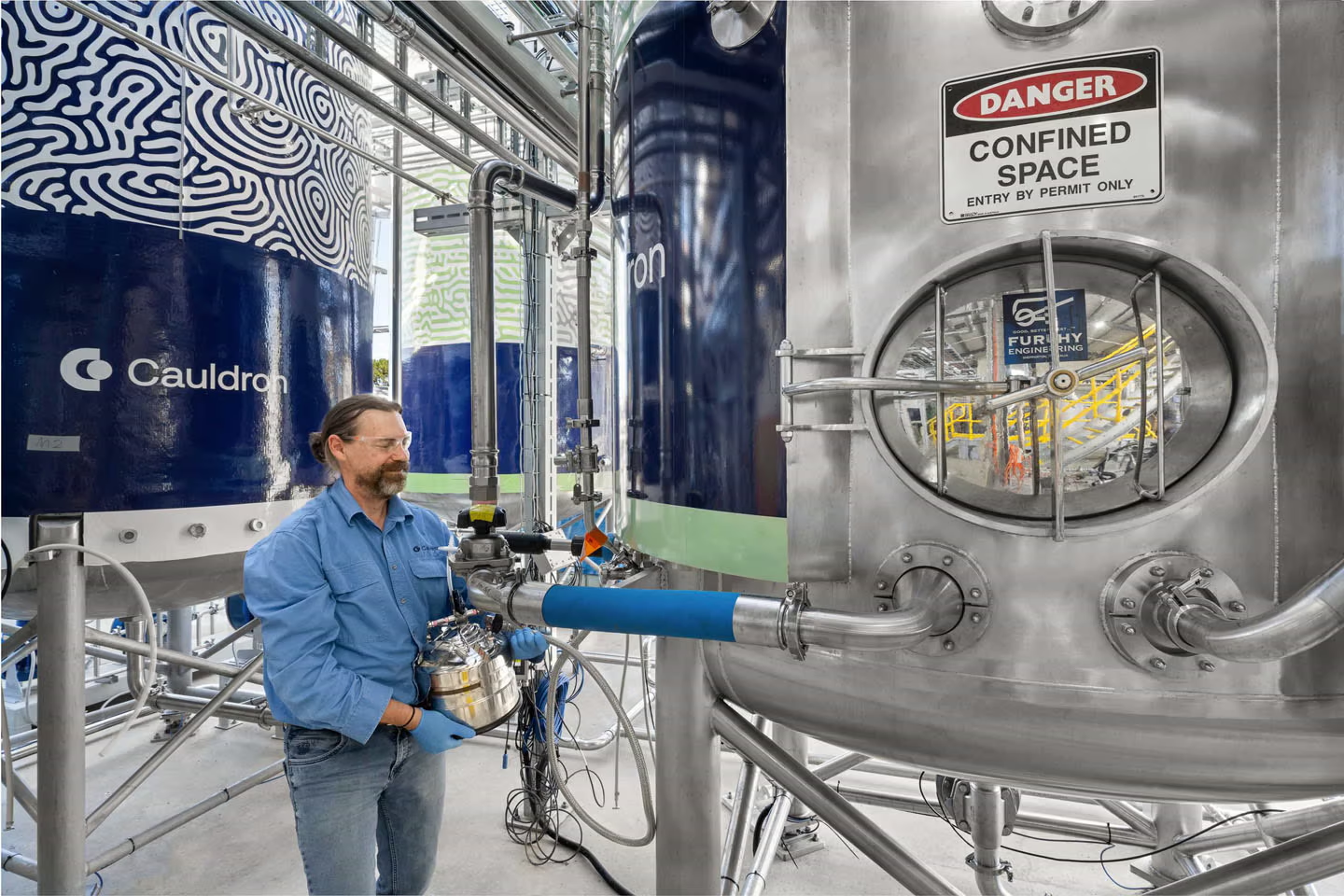
Bioprocessing & Fermentation
Operate and monitor systems that use yeast, bacteria, or enzymes to produce food ingredients, biofuels, or biomaterials. Think of it as high-tech brewing — but for a wide range of products.
-
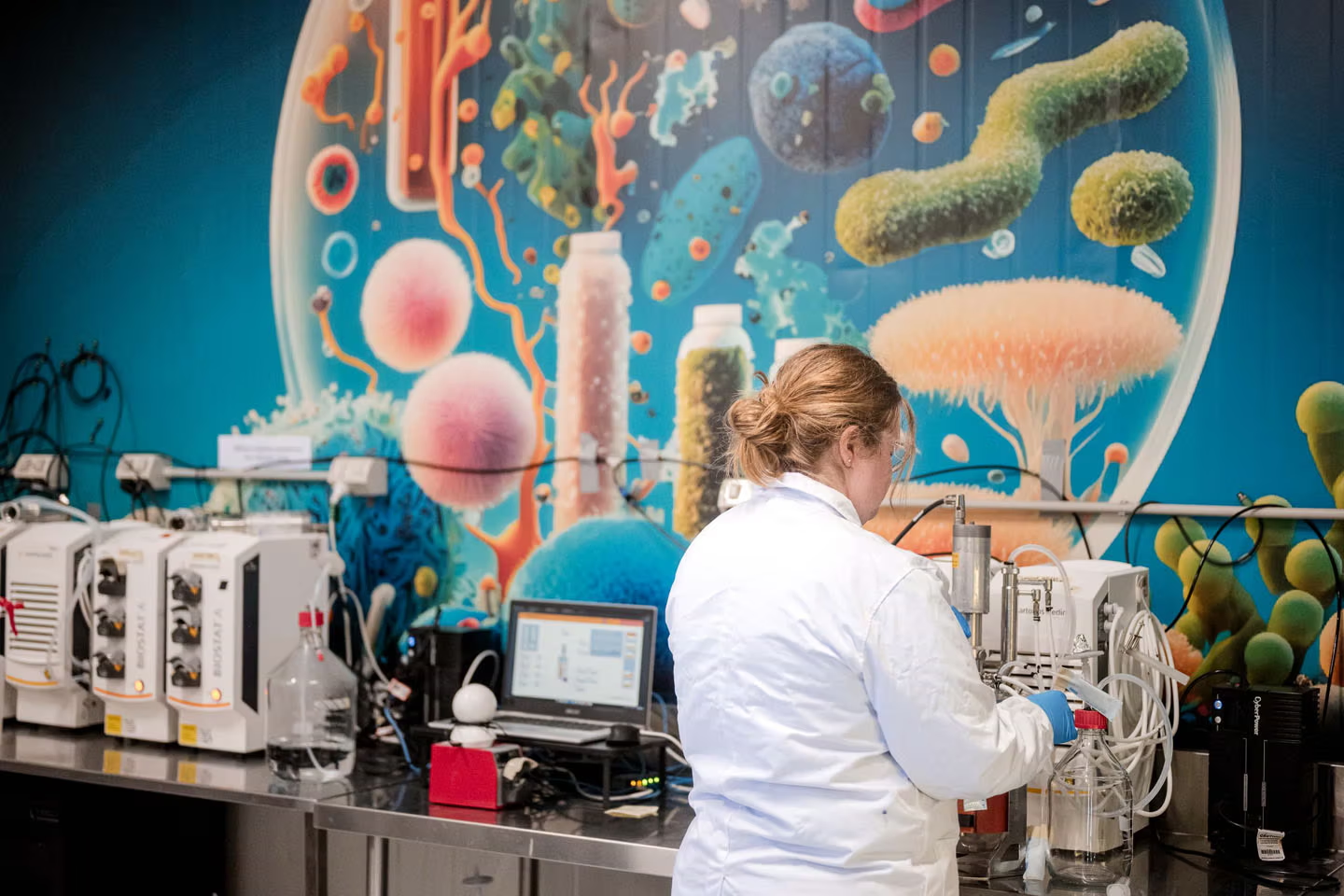
Science & Quality Control
Ensure that biological products meet the highest standards. Roles in lab testing, sampling, and monitoring help guarantee product safety and consistency.
-
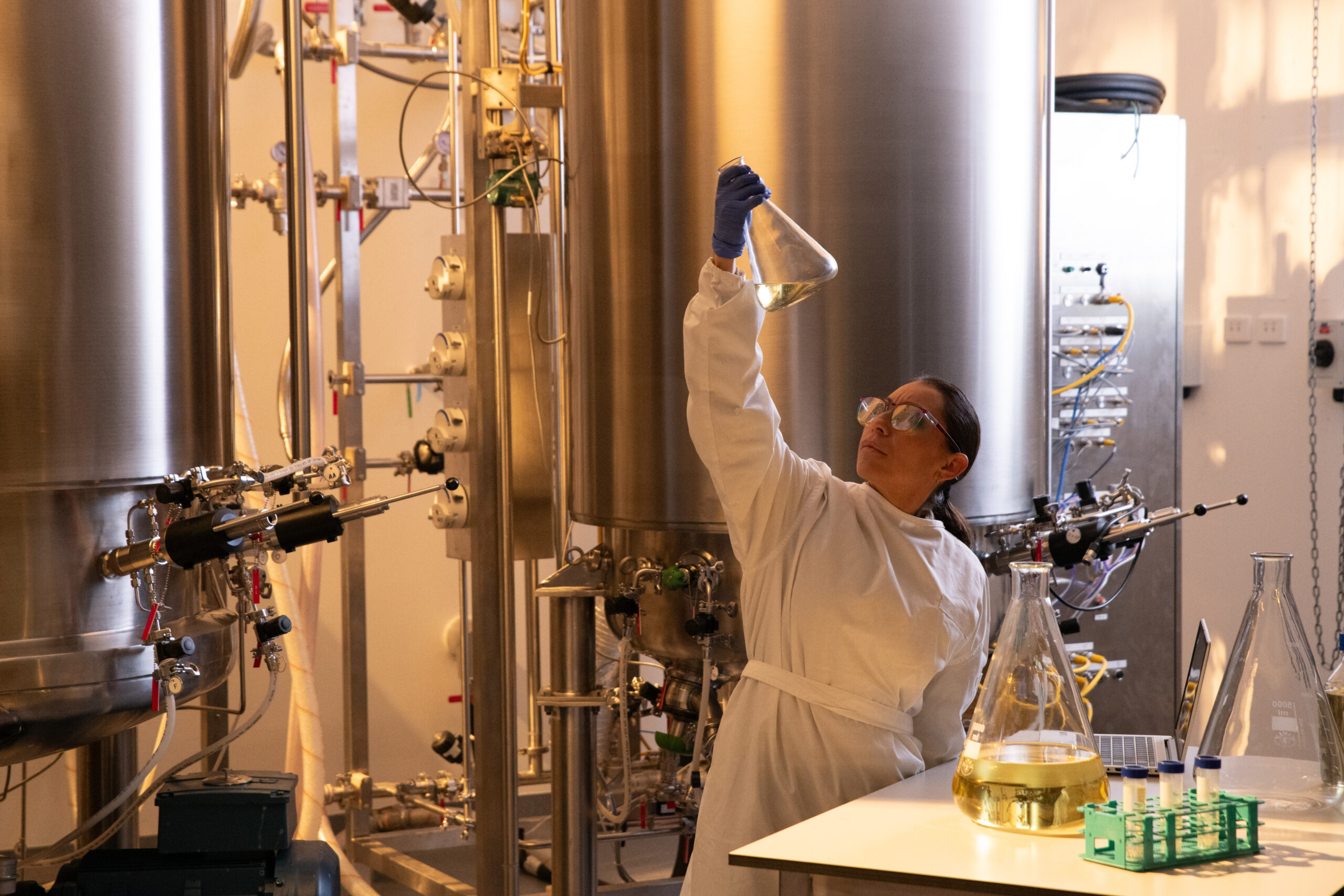
Research & Development (R&D)
Help develop new processes and materials — from animal-free proteins to biodegradable packaging. R&D teams work at the forefront of biotechnology innovation.
-
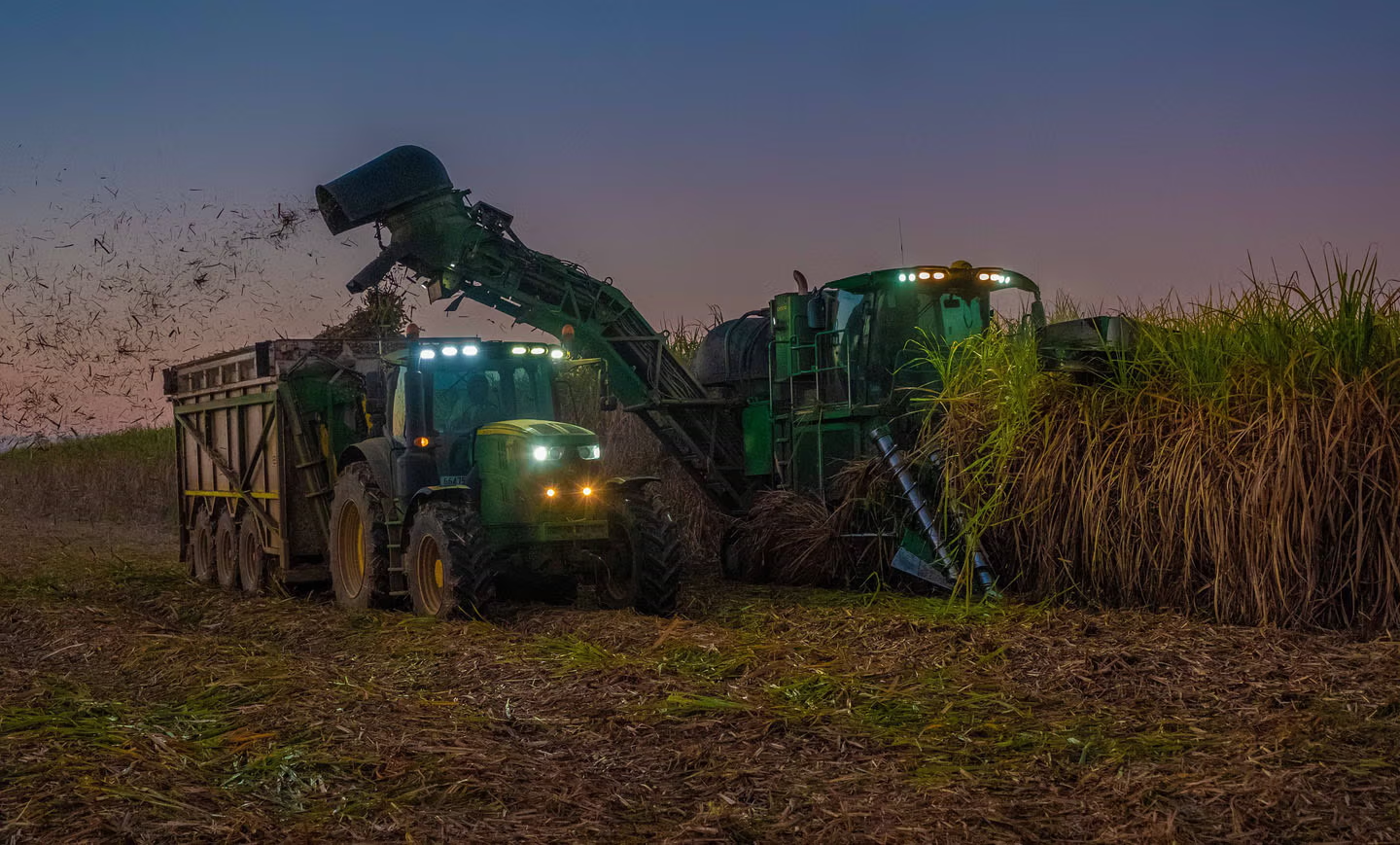
Supply Chain & Manufacturing Operations
Coordinate raw materials, manage production flow, and oversee the safe transport and storage of bioproducts — essential roles in this emerging industrial ecosystem.
-
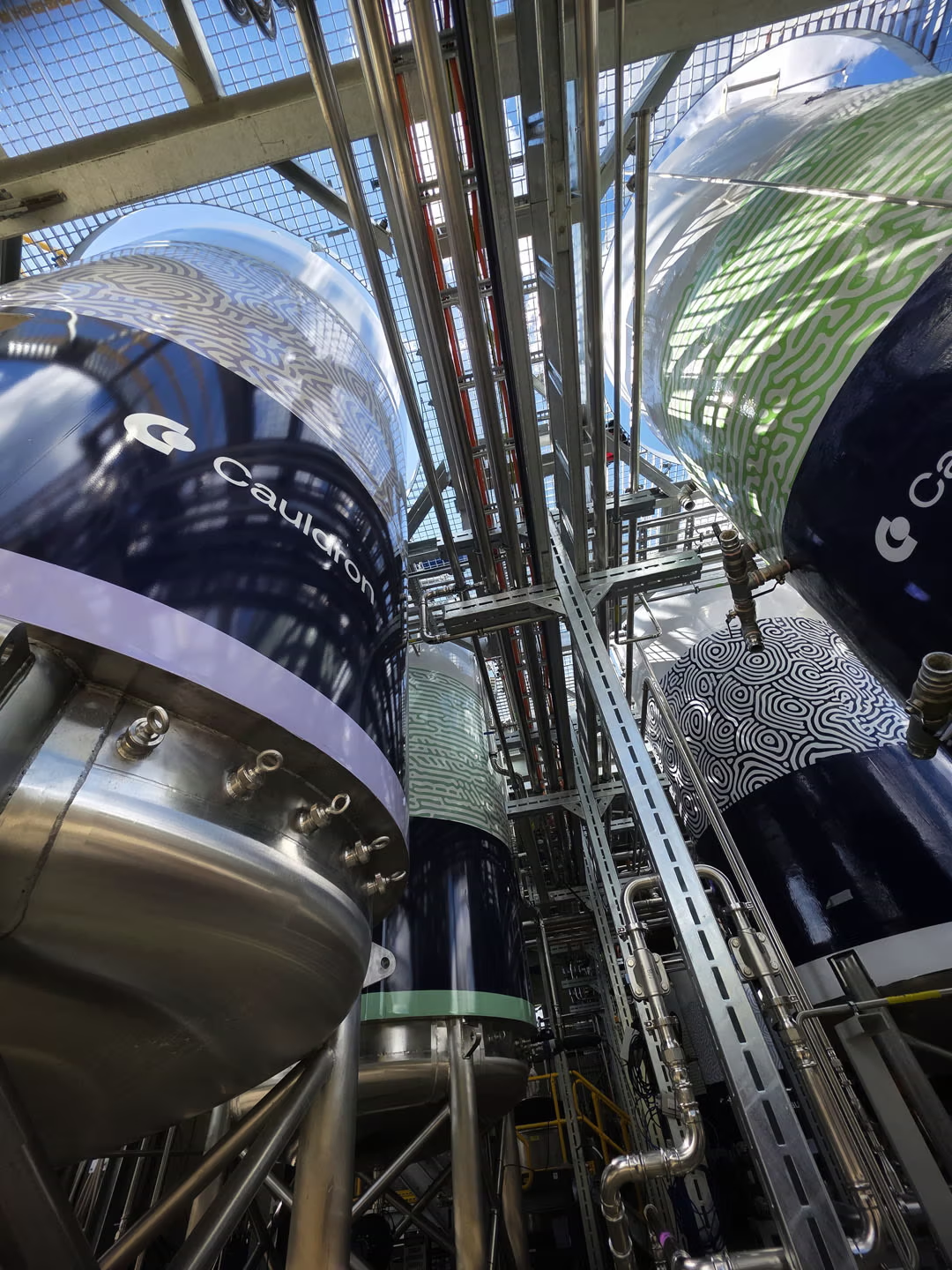
Facility Operations & Maintenance
Biomanufacturing facilities rely on skilled trades and technicians to keep equipment running, maintain safety standards, and support day-to-day operations. Roles include electricians, mechanics, instrument technicians, and plant operators who ensure production lines stay efficient and compliant.
Explore what a future in
Biomanufacturing could look like
Zoom In on a Biomanufacturing Career!
Curious about what it’s really like to work in biomanufacturing? Let’s take a closer look at the opportunities and how they could shape your future.
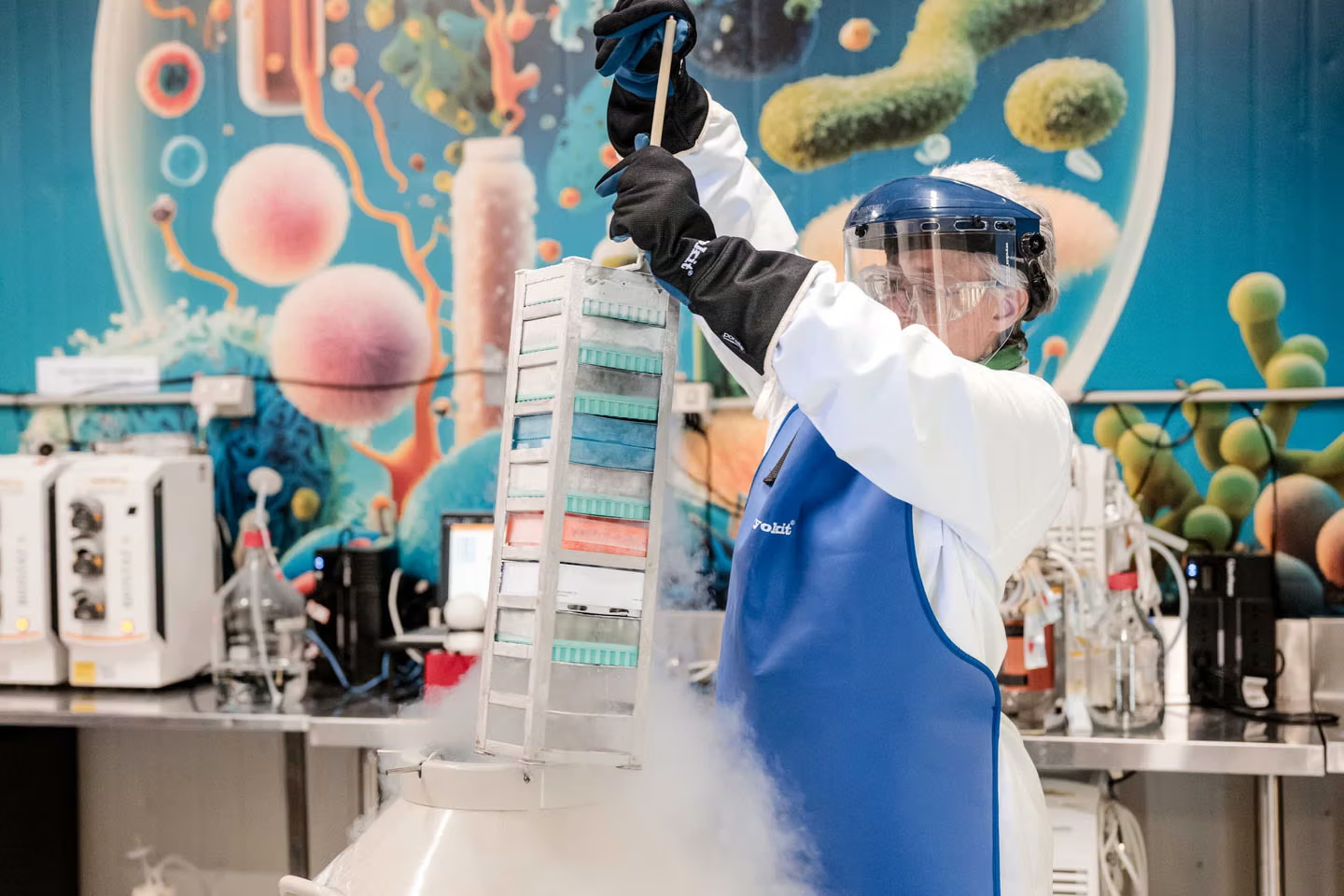
Real Stories, Real Solutions – Inside Biomanufacturing!
Hear how local lab techs, researchers, and production teams are shaping the region — from creating sustainable products to using pioneering bio tech every day. These are the people in our region turning science into real-world solutions and making a real impact in biomanufacturing.
Find Out More About Biomanufacturing and Potential Careers!
Want to take a closer look at biomanufacturing in the Greater Whitsunday region? Explore these resources to see how this new and fast-growing industry is shaping the future of our region — and discover local opportunities to upskill, train, or launch your career in this exciting field.
-
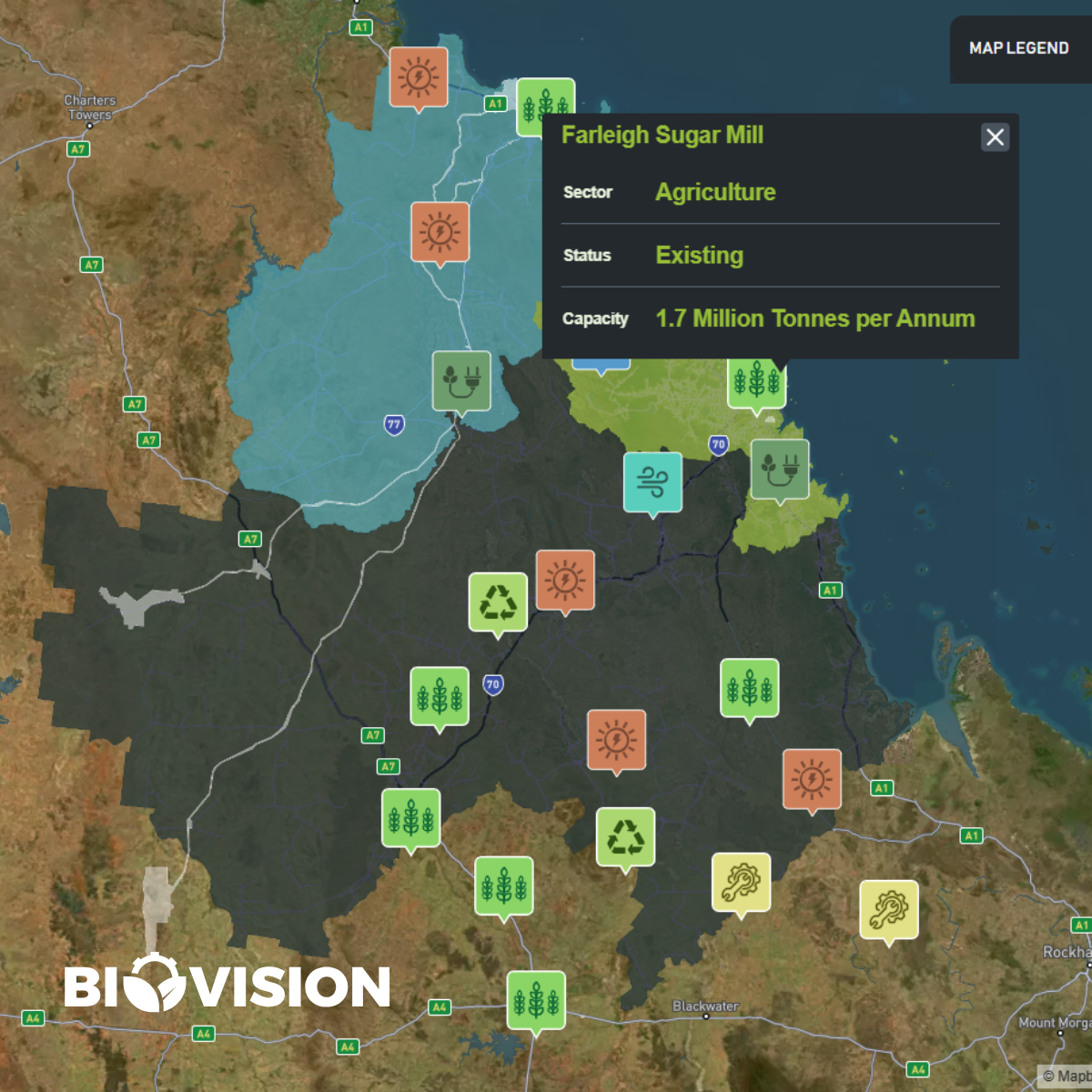
Greater Whitsunday BioVision
Discover an interactive showcase of our region’s biomanufacturing strengths—feedstock, infrastructure, skilled workforce, and innovation. See why we’re ready to lead as a globally significant biomanufacturing hub.
-
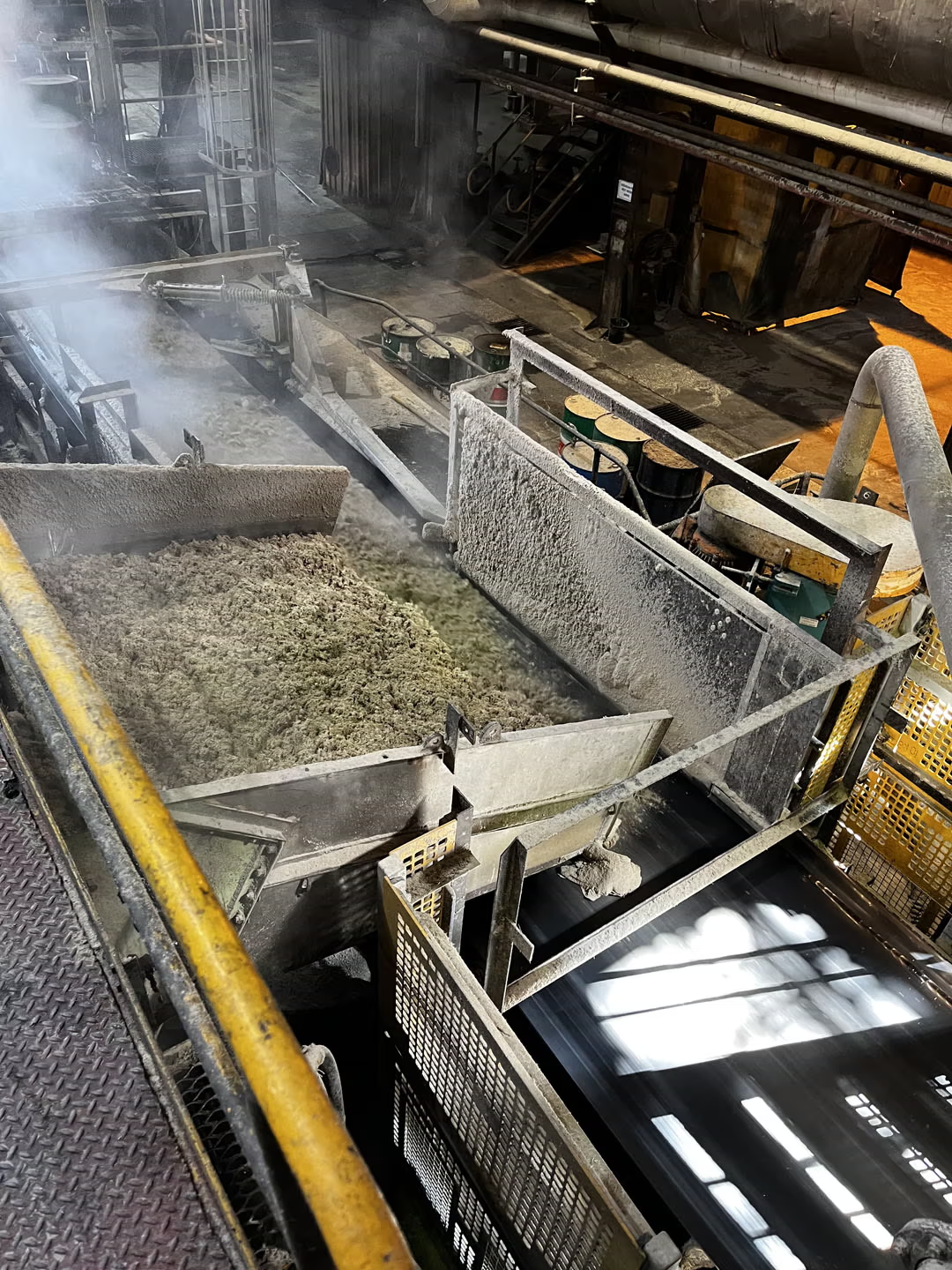
Biomanufacturing & Precision Fermentation 101
Check out this short video that explains food biomanufacturing!
-

Cauldron Ferm
Curious about the science behind the future of food, materials, and sustainability? Explore the cutting-edge fermentation technology driving the next wave of biomanufacturing innovation.
Want to learn more about study and career pathways?
Explore regional options and find out who to contact for more information here.
Step into a world where science meets sustainability — could you find your future in Biomanufacturing?
Keep exploring to see where your future could take you
-
Process Engineer
Drive innovation and efficiency in biomanufacturing and advanced food-grade manufacturing.
As a Process Engineer, you’ll design, optimise, and oversee manufacturing processes to ensure high-quality production that meets safety and regulatory standards. Using advanced technology like automation, sensors, and data analytics, you’ll monitor and improve workflows to boost productivity and reduce waste. Collaborating with cross-functional teams, you’ll ensure processes meet environmental and quality compliance. Your role is vital in delivering safe, sustainable products efficiently.
In the Greater Whitsunday region, Process Engineers are emerging as key players in biomanufacturing and food-grade industries, applying cutting-edge techniques that support regional economic growth. Be part of this exciting industry shaping the future of advanced manufacturing locally.
What you might do day-to-day:
- Develop and improve manufacturing processes
- Monitor equipment performance and troubleshoot issues
- Ensure compliance with safety and quality standards
- Analyse data to drive continuous improvement
This role suits people who:
Are analytical, detail-focused, and enjoy problem-solving.Pathway:
Typically, study a degree in chemical, process, or mechanical engineering. Further specialisation or postgraduate study can open advanced opportunities. -
Technician
Play a hands-on role in shaping the future of biomanufacturing through technical skills and innovation.
As a Technician, you’ll assist in the setup, maintenance, and operation of manufacturing equipment, ensuring everything runs safely and efficiently. You’ll use modern technology, including automated systems and digital monitoring tools, to troubleshoot issues and support process improvements. This role helps maintain high quality and safety standards throughout production. Collaborating with engineers and operators, you’ll contribute to smooth workflows and continuous innovation in manufacturing processes.
In the Greater Whitsunday region, Technicians will help lay the foundations of a new and fast-evolving biomanufacturing industry, bringing practical skills and technical know-how to support local innovation and future-ready production.
What you might do day-to-day:
- Assist with equipment setup, maintenance, and repairs
- Monitor production processes and quality controls
- Use digital tools to record data and report issues
- Support compliance with safety and environmental standards
This role suits people who:
Are hands-on, detail-oriented, and enjoy problem-solving.Pathway:
Many start with vocational certificates or diplomas in engineering, manufacturing, or process technology. On-the-job training and apprenticeships provide valuable experience, with opportunities to upskill through further study or specialisation. -
Site Director
Lead operations and strategy at the forefront of regional biomanufacturing.
As a Site Director, you’ll oversee the entire operation of a biomanufacturing or food-grade production facility—ensuring performance, safety, compliance, and strategic growth. You’ll lead teams across production, engineering, logistics, and quality control, using data-driven insights, automation, and advanced tech systems to improve output and efficiency. With a focus on innovation and sustainability, you’ll shape workplace culture, meet regulatory requirements, and drive continuous improvement.
In the Greater Whitsunday region, Site Directors are key leaders in a growing advanced manufacturing industry. As new facilities emerge, there are exciting opportunities to influence direction, mentor future leaders, and support regional economic development.
What you might do day-to-day:
- Oversee site performance and daily operations
- Manage teams, budgets, and strategic goals
- Implement safety, quality, and compliance standards
- Lead innovation and process optimisation
This role suits people who:
Are decisive, goal-oriented, and thrive in complex, fast-paced environments.Pathway:
Many begin in technical or trade roles and move into leadership. A degree in engineering or business is often preferred, but VET qualifications, experience, and further study can also lead to this role. -
Site Business Manager
Drive the commercial success and operational efficiency of biomanufacturing sites.
As a Site Business Manager, you’ll oversee budgets, contracts, procurement, and stakeholder relations while ensuring compliance with industry standards and company policies. Using advanced management software and data analytics, you’ll monitor performance and identify opportunities for growth and innovation. Leadership and communication skills are essential as you coordinate between teams, suppliers, and senior management to meet production and business goals.
In the Greater Whitsunday region, Site Business Managers will play a vital role in supporting the growth of emerging biomanufacturing industries, helping to shape the region’s economic future through effective business management.
What you might do day-to-day:
- Manage site budgets, contracts, and procurement
- Coordinate with internal teams and external partners
- Use management software to track performance and compliance
- Identify opportunities for business improvement and innovation
This role suits people who:
Are organised, strategic thinkers, and excellent communicators.Pathway:
A university degree in business, management, or related fields is desirable. Alternatively, starting with a VET qualification in business, operations, or management combined with industry experience and leadership mentoring could lead to this role. -
Quality & Regulatory Manager
Ensure product excellence and compliance in biomanufacturing facilities.
As a Quality & Regulatory Manager, you’ll develop and oversee quality systems and regulatory processes to meet strict industry standards and government regulations. Using digital quality management tools and data analytics, you’ll monitor product quality, lead audits, and manage risk to safeguard consumer safety and company reputation. This role is vital for continuous improvement and innovation, ensuring products are safe, effective, and compliant.
In the Greater Whitsunday region, Quality & Regulatory Managers will be key to supporting the growth of emerging biomanufacturing industries by maintaining high standards that foster regional economic development and consumer trust.
What you might do day-to-day:
- Develop and maintain quality management systems
- Lead internal and external compliance audits
- Analyse quality data and implement improvements
- Ensure regulatory requirements are met and documented
This role suits people who:
Are detail-oriented, analytical, and proactive problem-solvers.Pathway:
Typically study a degree or diploma in quality management, food technology or science. Practical experience in regulatory environments is important. -
Fermentation Scientist
Explore the science behind fermentation to create innovative biomanufactured products.
As a Fermentation Scientist, you’ll develop and optimise fermentation processes that use microorganisms to produce everything from pharmaceuticals to food ingredients. Applying expertise in microbiology and biochemistry, you’ll work with advanced bioreactors, sensors, and data analysis tools to improve yield, quality, and sustainability. Collaborating closely with production and quality teams, this role ensures processes meet regulatory and safety standards while driving innovation.
In the Greater Whitsunday region, Fermentation Scientists will be at the forefront of the emerging biomanufacturing industry, helping shape cutting-edge, sustainable manufacturing that boosts the regional economy.
What you might do day-to-day:
- Design and improve fermentation processes
- Monitor microbial growth and product quality
- Analyse data to optimise production efficiency
- Collaborate with cross-functional teams on product development
This role suits people who:
Are curious, analytical, and passionate about science and innovation.Pathway:
University study is required for this role with typical pathways including a degree in microbiology, biotechnology, or chemical engineering. Internships and lab experience are key. -
Local Engagement Manager
Connect communities and businesses to drive positive impact and collaboration.
As a Local Engagement Manager, you’ll build strong relationships between organisations, stakeholders, and the Greater Whitsunday community. Using communication platforms and data insights, you’ll coordinate engagement activities, consultations, and partnerships that support environmental, social, and governance (ESG) goals. You’ll help raise awareness of emerging biomanufacturing and advanced food-grade technologies, highlighting their benefits for society and the region’s future. This role involves managing stakeholders, considering feedback, and fostering transparent dialogue to ensure inclusive decision-making and community support.
In the Greater Whitsunday region, Local Engagement Managers will play a vital role in strengthening ties between business, government, and local communities as the biomanufacturing industry grows.
What you might do day-to-day:
- Develop and implement community engagement strategies
- Facilitate stakeholder consultations and partnerships
- Analyse feedback to inform project development
- Organise events and communication campaigns
This role suits people who:
Are empathetic, organised, and skilled communicators.Pathway:
Often starts with qualifications in community development, communications, or business. Experience in stakeholder engagement and project management is valuable, with further study enhancing career prospects.

